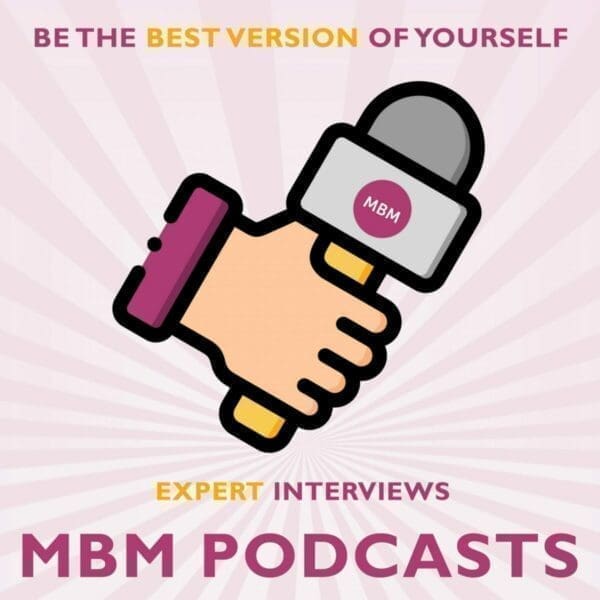Podcast: Play in new window | Download
Grocery Guru Episode 3: How the New Normal May Impact Holidays
In this episode of The Grocery Guru, we discuss the ‘new normal’ and how this is likely to affect Christmas. Touch challenges for our industry during Covid-19.
You Can Read the Full New Normal Episode Transcript Below:
Darren A. Smith:
Hello. We’re on week three of the Grocery Guru. That is Andrew Grant. Hello.
Andrew Grant:
Hi Darren. You okay?
Darren A. Smith:
Yeah, I’m good. I’m good. So in our first week, we talked about the UFC’s, which were Urban Fulfillment Centers. In our second week, you said to us that category management is dead, very provocative, very emotive, which we had a nice debate about. And in week three, I’m waiting with bated breath. What’re we talking about?

Andrew Grant:
Well, maybe slightly off-topic, I’m not sure. But Christmas, and what are you buying me, Darren?
Darren A. Smith:
Oh.
Andrew Grant:
Front of my mind.
Darren A. Smith:
I was thinking of a big pair of those monster slippers.
Andrew Grant:
Oh, with Garfield on the front?
Darren A. Smith:
All right. Why is Christmas on your mind? Apart from it’s coming up in-
Andrew Grant:
No, just thinking. What is it today? The 27th. So it’s the end of October. We are … in two months’ time Christmas will be done.
Darren A. Smith:
Yes. Yes.
Andrew Grant:
And I’m just thinking back. If we think back to sort of the 23rd of January, two months on from then, 23rd of March, when we got … Boris locked us all down. Did we really expect on the 23rd of Jan, that what happened to us was going to happen? I mean, we knew something was going on in China. There was a city we never heard of called Wuhan, and some people were getting bad colds. Could you ever have expected two months later, us to go into what we’ve now had for six months?
Darren A. Smith:
No, no, not a chance. Something to do with a bat as well as in the story, wasn’t it?
Andrew Grant:
Yeah. Yeah. Some strange seafood market and doing strange things with bats. But yeah, whatever.
Darren A. Smith:
All the people out there talking about grocery. Why are you thinking about it now?
Andrew Grant:
What is the link? Well, I’m just thinking that this is traditionally the time, post-Halloween, when the retailers go into, and I’m going to use the phrase actually, go into Christmas lockdown mode. 1st of November it is all about the home run to Christmas. They start counting back to Christmas Day. So it’s Christmas Day minus 56 days, 55 days. All their plans.
This Christmas, we have no idea what might happen. And it was interestingly the COO of Tesco on Monday saying, “There won’t be a problem, but we really do suggest you start shopping early.” So I think quietly they are petrified that will they be able to supply Christmas? I guess more importantly for them, what sort of Christmas will they supply? And I can imagine the best-sellers are going to be two-meter long Christmas crackers. Socially distanced Christmas crackers. If you want to make some money, get yourself into the two-meter Christmas cracker market.
Darren A. Smith:
Only you. Interesting, I was talking to a client earlier today, and she said that a supermarket was talking to them about contingency. Would they go find a similar supplier like themselves, that should they get COVID, could they then turn on a similar supplier? They were … Well, the chest was out, the head was back. “No, we’re not doing that.” But then the supermarket said, “Yeah, you got to.”
Andrew Grant:
Well no, think about, and you’ve been there, think about fresh foods. So grocery and non-foods, the stuff’s been ordered for a long time. But you remember the days of making sure all the gate codes hit the 25th of December, and you can only order the cream seven days ahead, I think. The pigs in blankets, four days ahead. The turkeys, eight or nine days ahead. And you’re right. I mean only this week, was it, another couple of factories got shut down because this COVID runs rampant in a cold, wet factory environment.
Darren A. Smith:
Super.
Andrew Grant:
Absolutely. You’re planning to have however many tens and hundreds of thousands of pigs in blankets produced, and the factory factories suddenly shut down.
Darren A. Smith:
So let’s say you’re buying direct, as you once were, from one of the big supermarkets. Eight weeks to go, what do you want from your suppliers? What are you asking for? What are you demanding? And, what are you thinking about?
Andrew Grant:
Crystal ball, I think. I mean, just the ultimate flexibility that, as I said when we started, that we don’t know what it is like in two months time. Will it be complete lockdown? Will the rule of six become the rule of one? I think we can be pretty sure there’s not going to be big family gatherings. So all the big party food, I imagine there won’t be a lot of demand for those big platters of party food, particularly for the New Year.
Doesn’t look like there’ll be New celebrations. So you can almost bet the bank on that. But nobody’s got any idea as to what restrictions we may face, and therefore what that’s going to do for orders. Because in a traditional Christmas, as I said, they all start counting down. The only big change at Christmas is when the Christmas day changes by a day. And that just changes the ordering pattern. But again, think of that fresh food shop where traditionally people descend on the supermarkets two or three days before Christmas Eve, and you can’t get in the car parks, and it is pandemonium. Can’t see that happening this year.
Darren A. Smith:
So when the COO said, “Shop early,” do you think the shape is going to be very different in the next eight weeks? People are going to start shopping, what, early December more to get stuff in? Panic shopping?
Andrew Grant:
Yeah. And we could be back to panic buying of Christmas puddings and Christmas crackers and stuff like that. It only takes one of our esteemed rack top newspapers to put out a story saying that, “No more Christmas crackers,” and you’ll have stampedes.
Darren A. Smith:
We will. One of the things we’ve used in the past when we’re not sure of planning forecasting, is P-R-O, PRO, Pessimistic Scenario, Realistic Scenario, Optimistic Scenario. And with those three scenarios, everything sort of falls between. So you go, “Well, we think we need to produce 100,000 pessimistic pigs in blankets. Realistically, maybe it’s 150,000. Optimistically it’s 200,000,” and have those three scenarios ready. That’s what I think a supermarket would expect the supplier to handle.
Andrew Grant:
Yeah. All I can say is I’m glad I’m not part of it. It’s going to be a very, very difficult Christmas. I guess the only thing you can say is, as we saw back in March, UK supermarkets are preeminent at getting their supply chains right. So if you wanted to bet any industry or any industry in any country that will actually make it happen, it’ll be the UK supermarkets.
Darren A. Smith:
Yeah. Yeah. Very true. Okay. Let’s take you post-Christmas. What does the landscape look like then? What do you think we’ve learned? Or should a supplier do?
Andrew Grant:
Yeah. Well no, unfortunately, the other great unknown, and it is now only nine weeks out, Brexit.
Darren A. Smith:
Yes, of course.
Andrew Grant:
Straight after the most disruptive Christmas ever, we still don’t know whether you’re then going to have the mother of all disruption with trying to bring food in from the EU. So that’s …
Darren A. Smith:
Yeah.
Andrew Grant:
I think my only top tip, and we are out of time, my only top tip, if you are a supplier, or particularly supplying one of the big supermarkets over Christmas, is don’t book any time off.
Darren A. Smith:
Right. Okay.
Andrew Grant:
Because your phone and your email are going to be busy.
Darren A. Smith:
Yeah. It’s going to be. So those buyers that maybe normally you couldn’t hear from them during the lockdown over the next eight weeks, maybe they are going to contact you, but it’s about Brexit and not about Christmas.
Andrew Grant:
Or about emergency production, or cutting production back, or trebling production, or now supplying Scotland when you used to supply Cornwall wall. Goodness knows.
Darren A. Smith:
Yeah. It could well be. So, all right. The two things I’m taking out of that is absolute flexibility. They probably knew that. That moves into PRO, Pessimistic, Realistic, Optimistic scenarios, to have those planned out. Because if you’re a planner at the moment, yeah, crumbs, you get that half right they’re going to pay you a million pounds. All right. And then we’ve got Brexit coming up in nine weeks as well, which is going to change the landscape once again.
Andrew Grant:
And what was it Barack Obama said? Plan for the worst, hope for the best.
Darren A. Smith:
Okay. Oh, talking of which. Well, in four days time we’ve got our cousins across the water doing their thing.
Andrew Grant:
Well, that could add a little bit of spice on top of everything too, depending on which way it goes. So who knows?
Darren A. Smith:
A little bit of brandy in your Christmas pudding.
Andrew Grant:
Absolutely. Right.
Darren A. Smith:
Andrew, Grocery Guru. Thank you. We’ll see you next week.
Andrew Grant:
Yeah. Cheers. Bye.
Darren A. Smith:
Take care.




